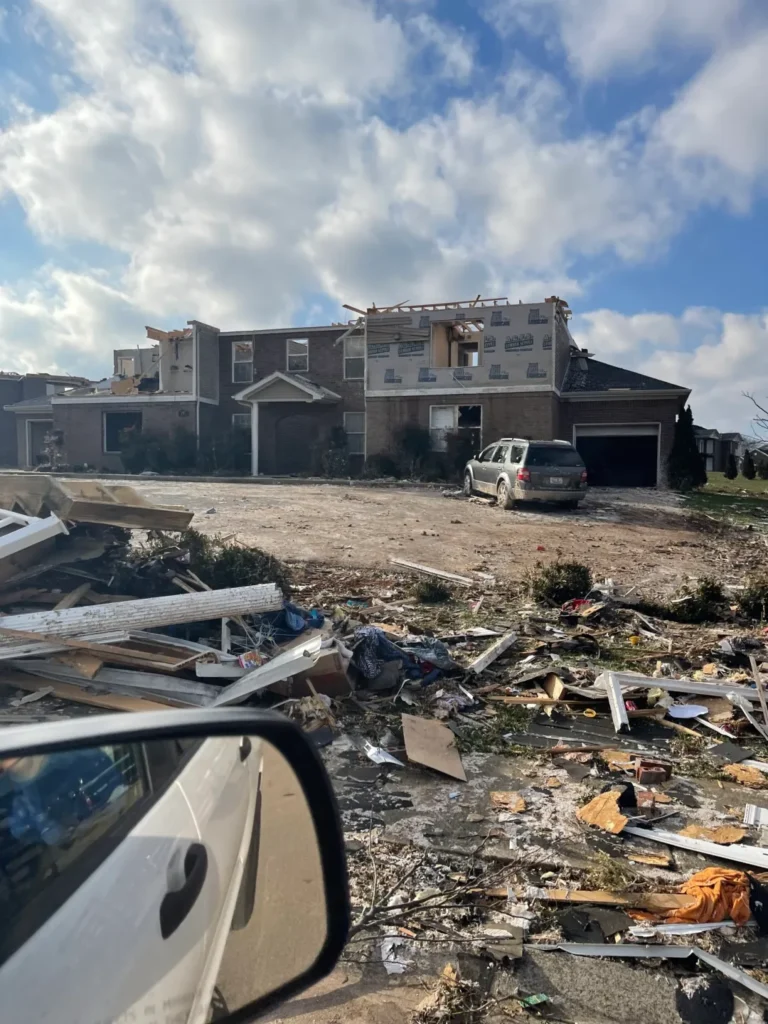Tornadoes are among nature’s most violent and unpredictable phenomena. These powerful rotating cones can pose substantial risks to lives and property.
Being prepared and knowing how to respond to these wind storms will help you stay safe during an outbreak. And, you also need the help of a property damage lawyer to ensure your rights when filing a claim.
Understanding Tornado Risks
So, what tornado risks should you know about? Before you learn safety tips, you also need to understand the risks.
Geographical Location
While tornadoes can occur in many parts of the world, some regions are more prone to these events. “Tornado Alley” includes states like Texas, Oklahoma, Kansas, and Nebraska. This alley has been expanded to include Mississippi, Alabama, Tennessee, Kentucky, and parts of Southern Indiana and Illinois and is referred to as Hoosier Alley.
Rapid Development
Tornadoes can develop fast, sometimes with little warning. Therefore, you need to take quick action. Look for the signs of an approaching tornado - dark green skies, large golf-ball-sized hail, and a sudden shift in the wind.
Destructive Power
Even a relatively weak tornado can trigger substantial damage due to its strong winds and the heavy debris it can carry.
Secondary Hazards
A tornado frequently accompanies a severe thunderstorm. In addition to the wind storm, dangers like hail, flash flooding, and lightning can occur.
Tips to Prepare
The following activities can help you feel more confident if you’re faced with a tornado.
Develop a Tornado Emergency Plan
Having a well-thought-out emergency plan will help you prepare for a tornado.
- Identify Safe Spaces: Designate a safe room or area in your home, preferably in a basement or an interior room on the lowest floor with no windows.
- Family Communication Plan: Figure out how family members will contact each other and where to meet if separated during a windstorm.
- Practice Drills: Regularly practice your tornado emergency plan with all family members following a tornado drill. This should include any special needs considerations.
- Create an Emergency Kit
Assemble a comprehensive emergency kit that includes the following items:
- Non-perishable food and water (at least a 3-day supply)
- Battery-powered or hand-crank radio
- Flashlights and batteries
- First aid kit
- Whistle
- Dust masks, plastic sheeting, and duct tape for shelter
- Plastic garbage bags
- Towelettes
- Tools to switch off utilities
- Manual can opener
- Cell phone with chargers and backup battery
- Important documents in a waterproof holder
Strengthen Your House
Take steps to reinforce your home against tornado damage by doing the following:

- Secure Loose Items: Regularly inspect your property and secure items that can become projectiles in high winds. Loose items include outdoor furniture, garbage cans and lids, loose roof shingles, downspouts, gutter, and other items that can become airborne.
- Reinforce Doors: Install sturdy door hinges and deadbolts, especially on exterior doors.
- Strengthen Windows: Consider installing impact-resistant windows or add shutters to protect windows as well.
- Roof Inspection: Make sure your roof is in good condition, and consider installing hurricane straps and ties to secure it to the walls. Because your roof is the first line of defense, you must ensure it’s anchored properly to your home’s walls. These connectors help you stay safe during any windstorm.
Build a FEMA-Approved Safe Room
A FEMA safe room must meet certain criteria with respect to structural integrity, anchoring, debris protection, size, access, and cost efficiency.
FEMA suggests that a licensed design professional get involved in designing and constructing your safe room.
Know How to Respond During a Tornado Warning
When a tornado warning is issued or if you spot a tornado:
- Shelter Yourself: Go to your pre-designated safe room or the lowest level of a sturdy building.
- Mobile Homes: Never stay in a mobile home during a tornado. Have a plan to get to a sturdy shelter quickly.
- Vehicles: If you’re in a vehicle, drive to the nearest shelter. If debris begins to fly, pull over and park. Stay in the car with the seat belt on, put your head down below the windows, and cover it.
- Outdoors: If you are caught outside without shelter, lie face down and place your hands over your head. Be aware of potential flooding.
- Stay Informed: Continue to monitor weather reports for updates.
After the Tornado - Taking the Proper Steps
Once the immediate danger has passed:
- Check for Injuries: Attend to injuries and seek medical attention if necessary.
- Be Cautious: Watch out for debris, downed power lines, and potential gas leaks.
- Document Damage: Take photos and videos of any damage for insurance purposes.
Stay Prepared Throughout the Year
Tornado preparedness isn’t a one-time effort:
- Regular Drills: Conduct family tornado drills at least twice a year.
- Update Emergency Kits: Check and update your emergency supplies at least annually.
- Review Insurance: Regularly review your homeowners’ or renters’ insurance to ensure adequate coverage for tornado damage.
The Importance of Retaining Property Damage Lawyer Who Handles Personal Injury Claims: Reasons to Get Legal Help

Dealing with property damage and potential personal injuries can be overwhelming after a tornado. This is where the experience of a property damage attorney who also handles personal injury claims is invaluable. Here’s why you need to rely on such a professional:
Comprehensive Legal Support
A lawyer experienced in property damage and personal injury can handle all the details of your case, including structural damage to your home, loss of personal property, or injuries sustained during the tornado.
Insurance Claim Assistance
Dealing with insurance companies after a disaster can be challenging. A skilled lawyer can review your policy, file the claim, negotiate with the insurance adjusters and appeal denied claims or low settlement offers.
Protection of Your Rights
Insurance companies may try to minimize payouts or deny claims. A lawyer will advocate for your rights so you’re not taken advantage of at a vulnerable time.
Documentation and Evidence Gathering
Proper documentation is critical for both property damage and personal injury claims. An experienced lawyer can gather necessary documentation, including medical records for injuries and work with construction experts to assess property damages accurately
Maximizing Compensation
A lawyer experienced in both property damage and personal injury can ensure you seek compensation for all applicable damages, including:
- Structural repairs
- Personal property replacement
- Medical expenses for injuries
- Lost income due to injury or displacement
- Temporary housing costs
- Emotional distress
Long-Term Considerations
An experienced property damage attorney can help you determine the long-term impacts of the tornado, such as ongoing medical treatment if there are injuries, long term property issues and possible future insurance increases.
No Upfront Costs
Many property damage and personal injury lawyers work on a contingency fee basis, meaning you don’t pay unless they win your case. This allows you to seek legal help without additional financial strain.

Talk to a Property Damage/Personal Injury Lawyer About Your Claim Now
Contact a property damage lawyer if you’re facing storm damage. Make sure you receive the compensation you need for your property and/or a personal injury. Talk to a property damage attorney today.